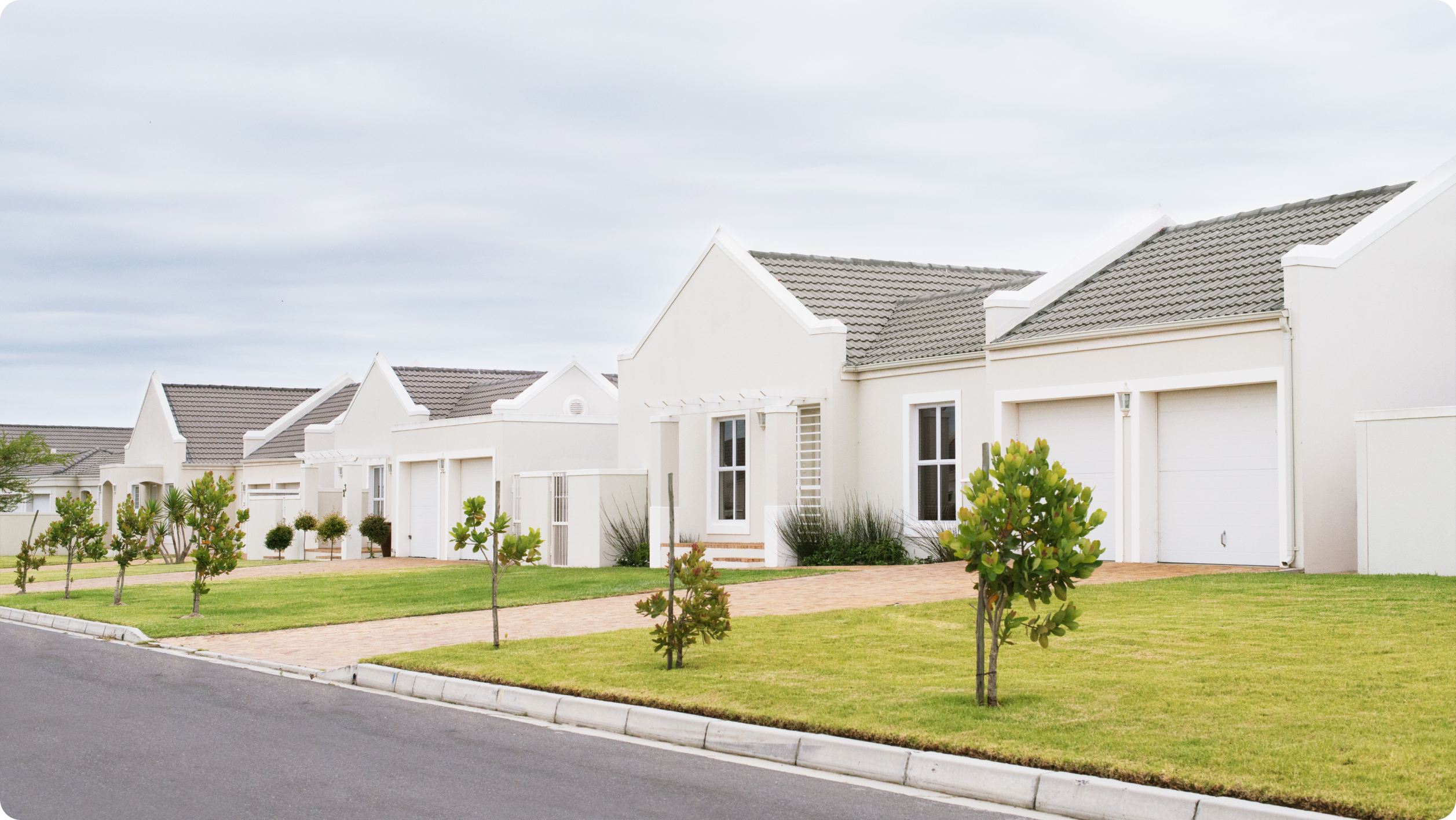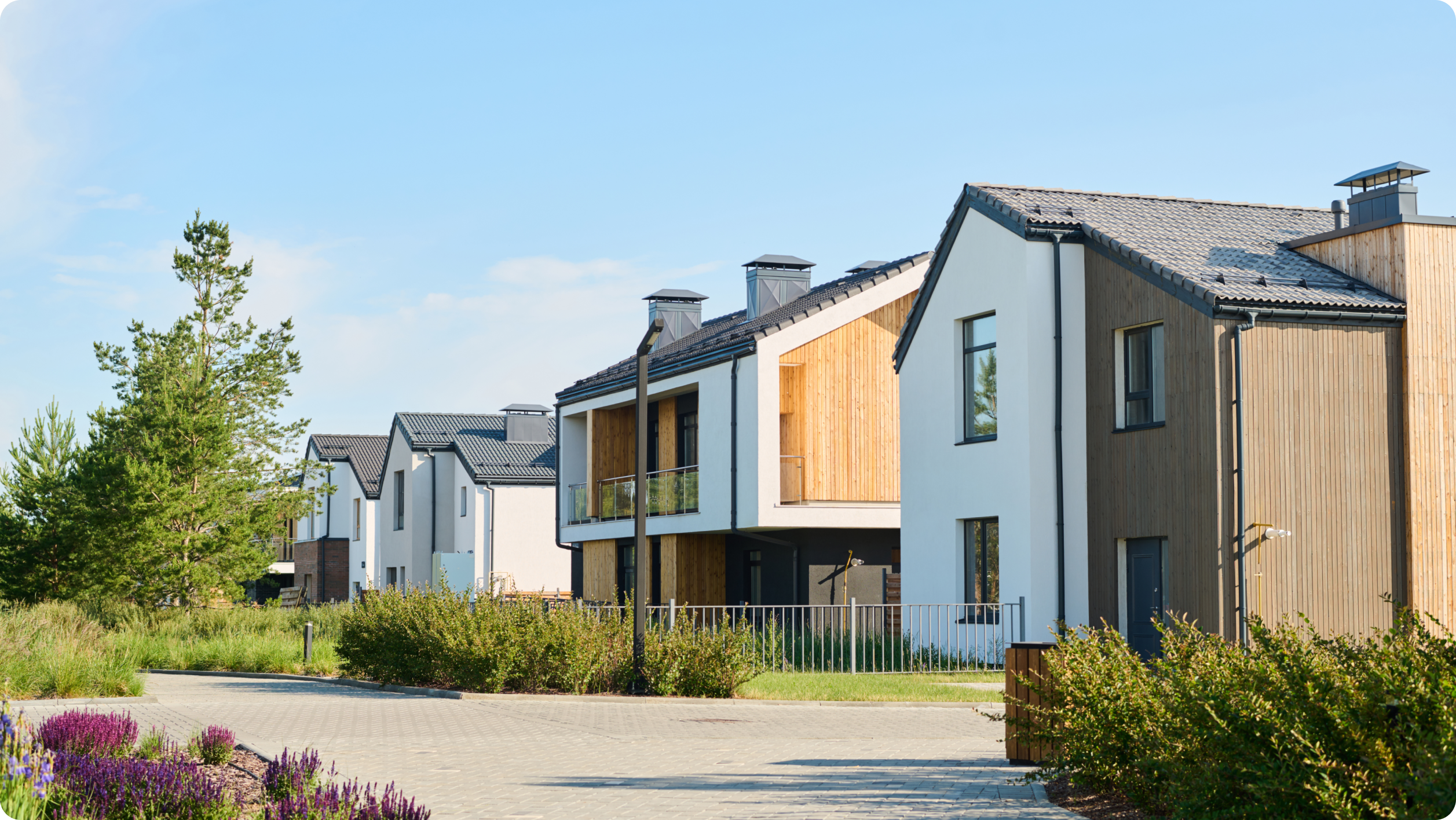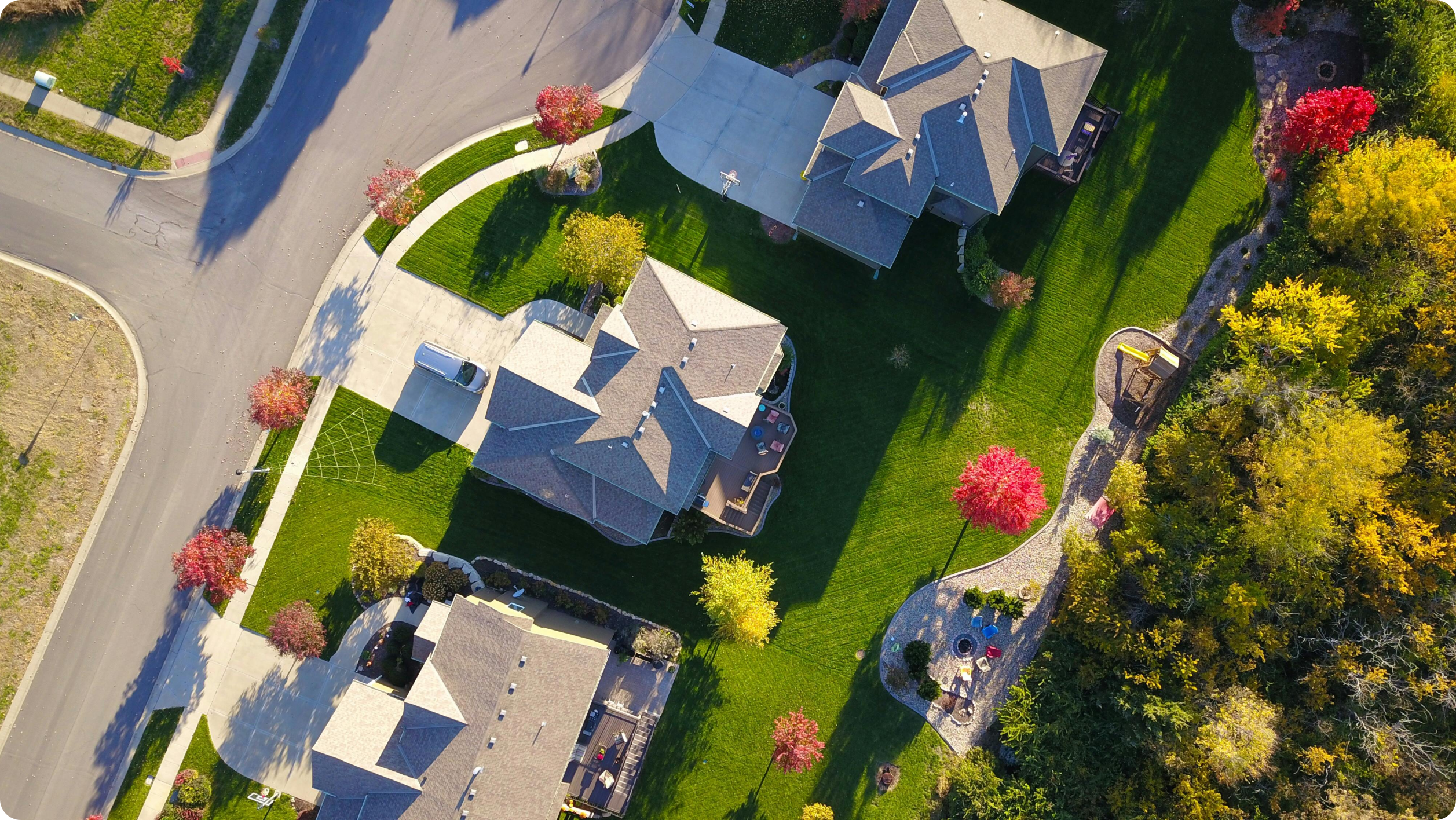Finding the right mortgage term is important in building a successful rental property portfolio. Knowing the standard length of mortgage on a rental property can help you better plan your cash flow, returns, and long-term investment goals. While 30-year mortgages are most common, terms can range from 10 to 40 years based on your strategy.
As of March 2025, the average mortgage in the United States decreased to $381,920 from $397,520, reflecting recent shifts in the housing market. This trend can create new opportunities if you’re looking to finance rental properties with more manageable loan amounts.
Choosing the best type of loan for investment property is also important. Whether that’s a conventional loan, an FHA loan for rental property, or even a VA loan if you qualify. In this guide, we’ll walk through the different mortgage terms, their pros and cons, and how to find the right fit for your rental property goals.
Key takeaways
- Understanding the average mortgage length is important for smart investing. While the most common term is 30 years, options range from 10 to 40 years, depending on your goals and cash flow needs.
- Finding the best mortgage term for a rental property can optimize your returns. Whether you’re focused on faster equity growth or maximizing monthly cash flow, the right term supports your long-term investment strategy.
- Loan type matters when financing rental properties. Investors can choose from conventional loans, FHA loans, VA loans, and options tailored to specific markets, like a rental property loan in Indiana.

10-year mortgage for investment property
A 10-year mortgage for an investment property is a short-term rental mortgage ideal for investors who want to build equity quickly and minimize interest costs. While monthly payments are higher, the loan is paid off much faster, resulting in significant interest savings.
This option is often preferred by experienced investors or those planning to sell or refinance in the near future. If you can manage the larger payments, a 10-year mortgage can boost your return on investment (ROI) and help grow your portfolio more efficiently.
Example:
An investor purchases a $300,000 duplex and finances it with a 10-year mortgage at a 6.07% fixed rate. Although the monthly payment is around $3,300 (much higher than a 30-year option), they save over $100,000 in total interest compared to a 30-year loan. After just 8 years, they refinance the fully paid-off property to fund a second investment without taking on excessive new debt.
Best for: Experienced investors who can handle the higher monthly payments and have stable rental income. It’s not typically the go-to option for new investors.
Pros
- Significant interest savings: Paying off the loan faster means you save substantially on total interest costs.
- Faster equity growth: A shorter term helps you build equity more quickly, boosting your property’s value and your potential ROI.
- Better interest rates: Lenders often offer lower interest rates for 10 year mortgages compared to longer-term loans.
- Ideal for short-term strategies: Great for investors planning to sell or refinance within a few years.
Cons
- Higher monthly payments: Larger payments can strain cash flow, especially if you’re managing multiple properties or operating on thin margins.
- Reduced flexibility: Higher expenses may limit your ability to reinvest profits or handle unexpected costs.
- Not ideal for cash flow-focused investors: If you rely heavily on rental income to cover mortgage payments, you may find a longer term more manageable.
15-year mortgage for investment property
A 15-year mortgage for an investment property offers investors a faster payoff and lower interest rates compared to longer-term loans. Seasoned investors often choose these mortgages for faster payoff, balancing higher monthly payments with positive cash flow and long-term profitability.
Example:
An investor purchases a $250,000 single-family rental and opts for a 15-year loan at 6.14% interest. Their monthly payment is higher (around $2,100), but they save over $90,000 in total interest versus a 30-year term. Within 15 years, they fully own the property, allowing rental income to become pure profit sooner, boosting retirement income or funding new investments debt-free.
Best for: Financially stable investors who want to build equity faster, save on interest, and still maintain healthy cash flow.
Pros
- Balance of affordability and savings: Monthly payments are higher than a 30-year mortgage but still manageable, with significant interest savings over the life of the loan.
- Faster payoff and equity growth: Paying off the loan sooner helps you build equity faster and reach financial freedom more quickly.
- Increased long-term profitability: Owning the property sooner boosts rental income profitability over time.
- Appealing for long-term investors: Ideal for investors who want a balance between cash flow and debt reduction.
Cons
- Higher monthly payments: Compared to a 30-year loan, the larger payments can strain cash flow, especially with multiple properties.
- Cash flow risks: Investors with unpredictable rental income may find the payments challenging to manage during vacancies or market shifts.
- Less flexible for newer investors: First-time or early-stage investors might prefer longer terms to keep expenses lower while building their portfolio.
20-year mortgage for investment property
A 20-year mortgage offers you a middle ground, faster payoff than a 30-year loan with lower monthly payments than 10 or 15-year options. This option is often chosen by investors who have a stable financial situation and prefer to find a middle ground between affordability and equity growth.
Example:
An investor buys a $400,000 triplex and chooses a 20-year mortgage at 6.51%. Their $2,900 monthly payment is more affordable than a 15-year loan and saves nearly $70,000 in interest compared to a 30-year loan. Over 20 years, they steadily build equity while keeping enough cash flow to cover maintenance, reserves, and portfolio growth.
Best for: Investors who want a faster payoff than a traditional 30-year mortgage but don’t want the financial strain of a 10-year term. It’s considered a practical option for those aiming for a balance between quicker equity growth and sustainable cash flow.
Pros
- Balanced payoff and affordability: Offers faster equity growth than a 30-year mortgage while keeping monthly payments lower than 10 or 15-year options.
- Stronger long-term profitability: Quicker loan payoff can increase rental income profitability over time.
- Better cash flow management: Helps investors reduce debt without overextending their finances.
- Popular among mid-term investors: A great option for those who want a shorter loan term without the financial pressure of very high payments.
Cons
- Higher payments than longer terms: Although more manageable than a 10-year mortgage, payments are still significantly higher than a 30-year loan.
- Cash flow challenges: Investors with multiple properties or tighter budgets may find it harder to maintain strong cash flow.
- Less ideal for new investors: Those just starting may prefer longer terms to keep monthly expenses as low as possible.
30-year mortgage for investment property
A 30-year mortgage for investment property is the most common option, especially if you’re focused on maximizing cash flow and managing risk over a longer period. This mortgage length is often chosen by investors who want lower monthly payments to improve cash flow and reduce financial strain, particularly in the early stages of property ownership.
Example:
A new investor buys a $350,000 rental property with a 30-year fixed loan at 6.85%. Their payment is about $2,300, giving them strong positive cash flow after covering expenses. The extra cash flow allows them to build reserves, save for property upgrades, and eventually leverage into a second property even while paying off the first.
Best for: Investors who prioritize cash flow stability over quicker debt repayment. It’s also ideal for beginners and those focused on maximizing rental property mortgage interest deduction over time.
Pros
- Lower monthly payments: Spreading payments over 30 years keeps monthly expenses more manageable, improving cash flow.
- Easier to manage multiple properties: Lower payments help you balance expenses across several properties, even with fluctuating rental income.
- Increased financial flexibility: Frees up capital for repairs, upgrades, or new investments without overextending your budget.
- Good for long-term strategies: Ideal if you’re focused on wealth accumulation through rental income and property appreciation.
Cons
- Higher total interest costs: While monthly payments are lower, you’ll pay significantly more interest over the life of the loan compared to shorter terms.
- Slower equity growth: Building equity takes longer, which could delay full ownership and profitability gains.
- Potential for more market exposure: Holding a loan for a longer period increases exposure to market fluctuations and interest rate risks if refinancing later.
40-year mortgage for investment property
A 40-year mortgage for an investment property offers the longest mortgage term available to most investors, though it’s far less common than the traditional 30-year option. Most traditional lenders don’t offer 40-year mortgages since they aren’t backed by Fannie Mae or Freddie Mac, which help stabilize mortgage rates by buying qualifying loans.
Without this backing, 40-year loans are typically offered by private or non-conventional lenders. They appeal to investors seeking the lowest possible monthly payments by stretching repayment over a longer period.
Example:
An investor purchases a $500,000 fourplex through a private lender offering a 40-year mortgage at 5.5%. Monthly payments are significantly lower (around $2,400 compared to $3,000+ on a 30-year term). This helps them build cash reserves, manage vacancies, and reinvest in new properties or upgrades.
Best for: Investors with a long-term perspective who are focused on short-term affordability and managing cash flow, rather than quickly paying off the property.
Pros
- Lowest monthly payments: Spreading the loan over 40 years significantly reduces monthly costs, improving cash flow.
- Eases financial strain: Lower payments make it easier for investors to manage expenses, especially during vacancies or market shifts.
- More flexibility to reinvest: Extra cash flow can be used to reinvest in upgrades, new properties, or portfolio diversification.
- Helps with affordability: Makes larger or more expensive properties more accessible in the short term for long-term investors.
Cons
- Higher total interest costs: Extending the loan term means paying much more in interest over time compared to shorter mortgages.
- Slower equity growth: A larger portion of early payments goes toward interest rather than building property ownership.
- Longer debt commitment: Holding a loan for four decades may expose investors to more market and interest rate risks over time.
Mortgage length comparison chart
Mortgage terms play a major role in shaping your cash flow, equity growth, and long-term returns. To make it easier to understand your options, we’ve put together a mortgage length comparison chart. Whether you’re aiming for faster equity with a 10-year loan or better cash flow with a 40-year mortgage, this chart highlights key differences to guide your investment strategy.
| Mortgage Length | Best for | Interest Payment Range | Type of Lenders | Fixed/Variable |
|---|---|---|---|---|
| 10-Year Mortgage | Experienced investors with stable rental income; less suited for new investors. | 6.19 %- 6.28 % | Non-traditional lenders, Portfolio lenders | Usually fixed, can be variable in some cases |
| 15-Year Mortgage | Financially stable investors looking for faster equity growth, interest savings, and strong cash flow. | 5.98 %- 6.26 % | Banks, Credit Unions, Portfolio lenders | Fixed or variable options available |
| 20-Year Mortgage | Investors looking for a faster payoff than a 30-year mortgage without the financial strain of a 10-year term, balancing equity growth and cash flow. | 6.51 %- 7.02 % | Banks, Credit Unions, Portfolio lenders | Fixed and variable rates available |
| 30-Year Mortgage | Investors are prioritizing cash flow stability over fast debt repayment. Ideal for beginners or lower-risk strategies. | 6.90 %- 7.34 % | Banks, Credit Unions, Government-backed loans | Mostly fixed, can be variable for ARMs |
| 40-Year Mortgage | Long-term investors focused on short-term affordability and cash flow over rapid payoff. | 5-6% | Non-traditional/private lenders, Portfolio lenders | Usually fixed, can be variable in some cases |
Finance your next investment with Baselane
Baselane makes securing rental property loans simple and flexible. Baselane connects you with trusted lenders for buying, refinancing, or expanding into short-term rentals across 48 states.
Ready to get started? See if you qualify today.
FAQs
The typical mortgage term for an investment property in the U.S. is 30 years, offering lower monthly payments and steady cash flow. However, different mortgage loan terms are available, ranging from 10 to 40 years, depending on your financial goals. If you're exploring options like an SBA loan for investment property or a commercial loan, you might find shorter or customized terms based on the lender's program.
It depends on your investment strategy. A 15-year loan helps you build equity faster and pay less interest overall, but the higher monthly payment can impact cash flow. A 30-year mortgage offers lower monthly payments, giving you more flexibility with your rental income.
When deciding, consider your long-term plans and financing options, especially if you're looking into investment property financing in Florida, where local market conditions could influence your choice.
A longer mortgage term, like 40 years, can lower your monthly payments significantly, improving your immediate cash flow. This flexibility can be helpful if you’re planning to expand your portfolio or need extra room in your budget. However, longer terms often mean paying more in interest over time.
Some mortgage loan terms tied to programs like SBA 7a requirements might offer extended terms with unique conditions, so it's important to review all options carefully.
Yes, you can get a short-term loan, usually between 10 and 15 years, for an investment property. Short-term mortgages are a good fit for investors who plan to flip properties or pay them off quickly. If you're wondering how to get a loan for an investment property with short terms, working with lenders who specialize in different mortgage loan terms is a smart first step.
Your mortgage term directly affects your ROI by changing your monthly payment, interest costs, and equity growth timeline. Shorter terms can boost your equity faster but may reduce cash flow upfront, while longer terms keep monthly payments low, allowing for greater monthly profits but more interest over time.







